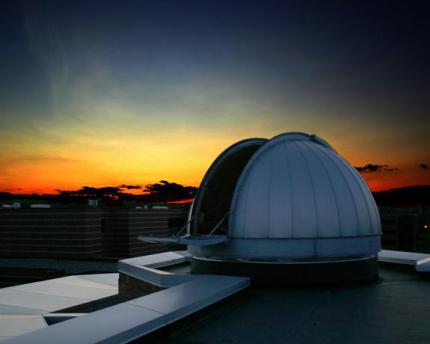Related Resources
Learn the Scientific Story of the Universe
 The minor or integrative studies concentration in astronomy introduces you to the concepts and techniques of astronomy and astrophysics. While deepening your appreciation of the science of astronomy, it also helps prepare you for the workforce–particularly in STEM fields. It’s most appropriate for students who:
The minor or integrative studies concentration in astronomy introduces you to the concepts and techniques of astronomy and astrophysics. While deepening your appreciation of the science of astronomy, it also helps prepare you for the workforce–particularly in STEM fields. It’s most appropriate for students who:
- Plan to pursue graduate studies in astronomy or physics
- Are working toward a secondary education physics certification
- Have a deep interest in the field
A minor or concentration consists of 12 hours of upper-level courses. Some may include research at the UM-Dearborn Observatory.
